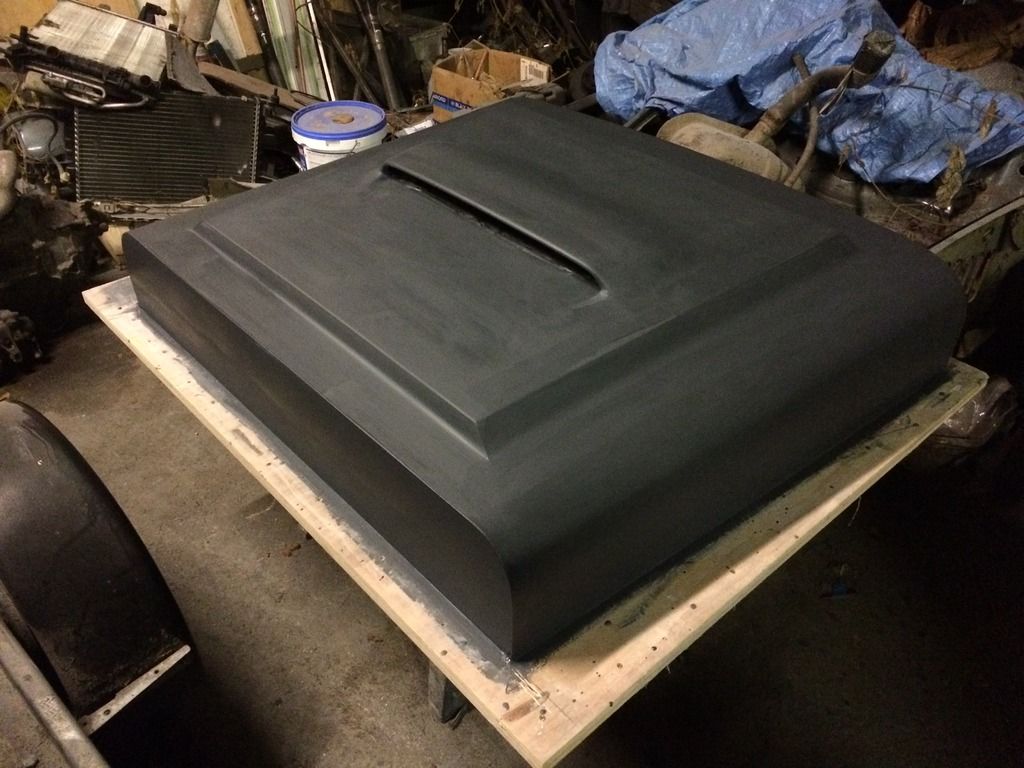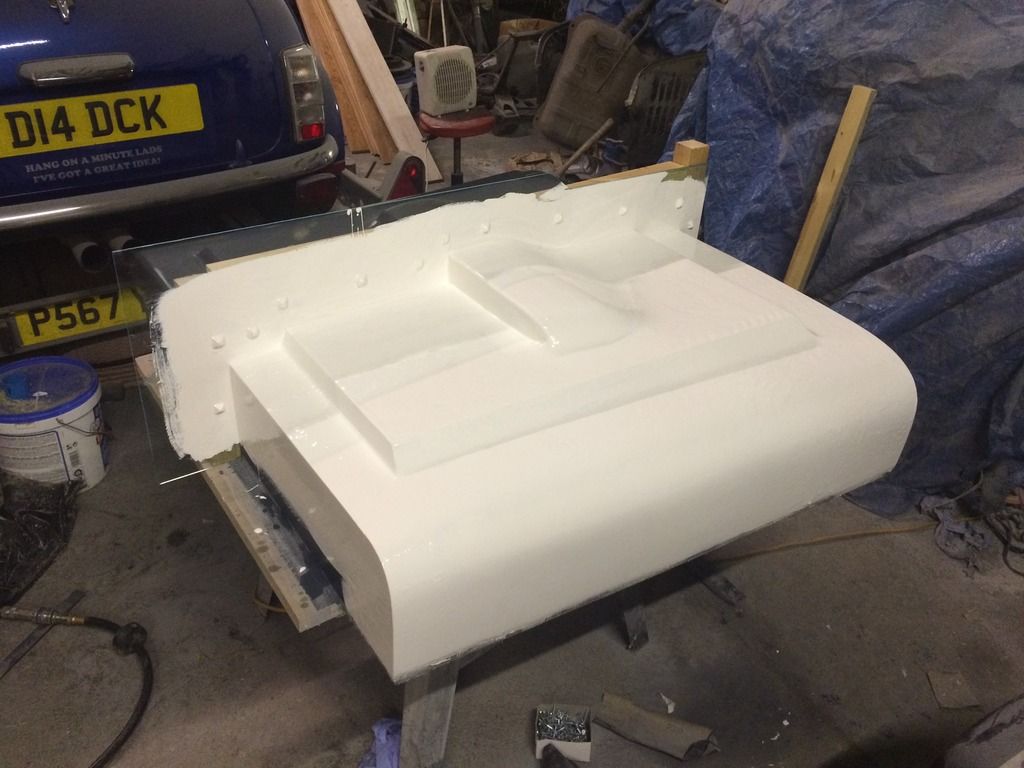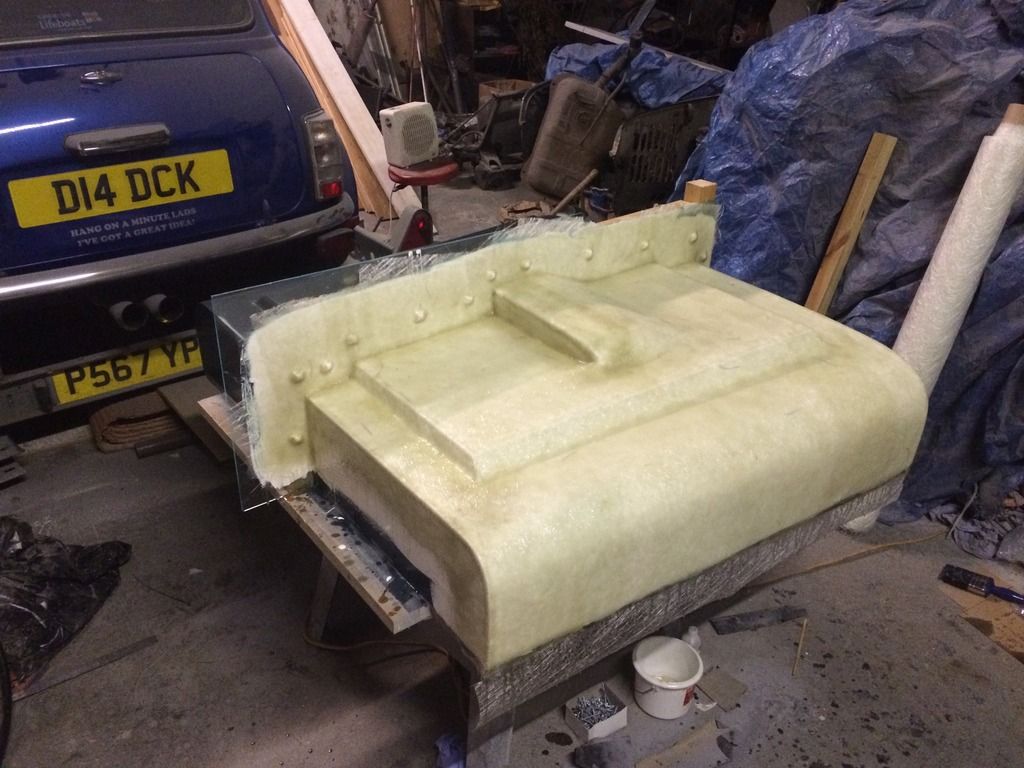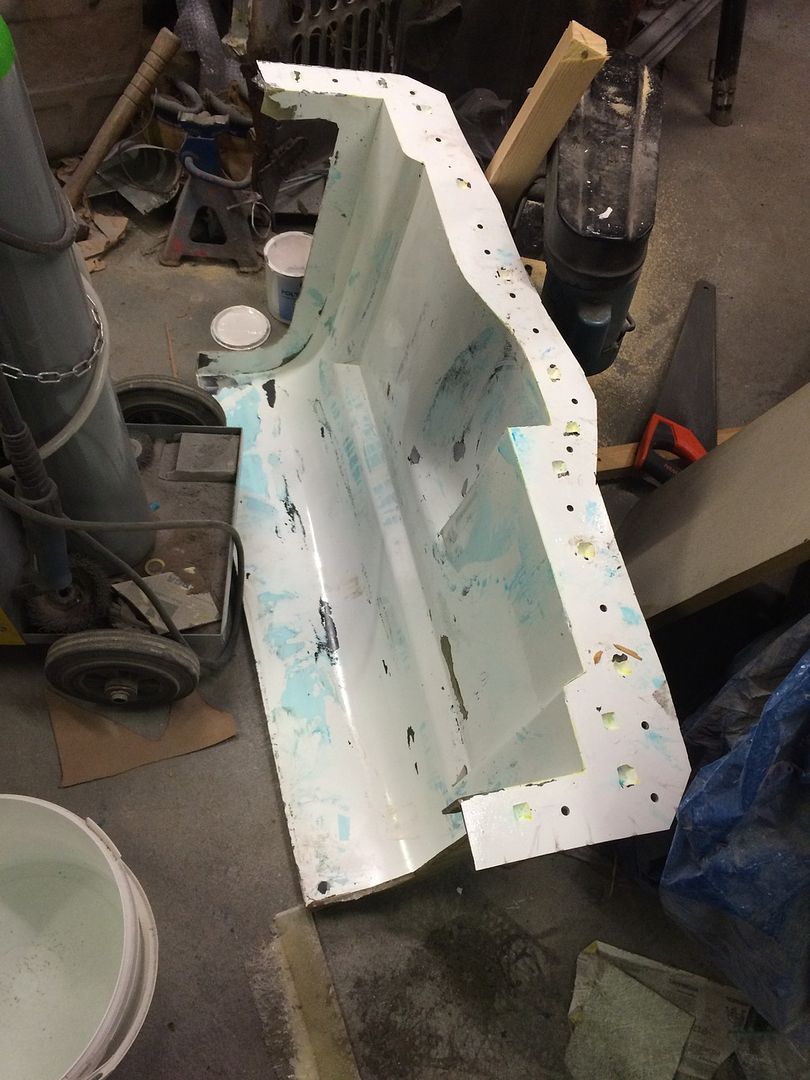matto_89
|
| posted on 2/1/16 at 09:34 PM |

|
|
Fibreglass bonnet bulge - advice please
Hi All - some questions around creating a fibreglass bonnet bulge. I've recently replaced a X-Flow with a Zetec and have currently got a rather
naff aluminium bulge, which covers part of the bike carbs and also the top of the timing belt, both of which stick out above the bonnet slightly. On
this winter's "to-do list" is a new bonnet (aluminium) with a new, more sightly bulge (fibreglass).
Never worked with fibreglass before but am OK with the basics - make a mould, cover with wax paper or similar, then layer over matting and the
resin/hardener combination.
However, what I'm not sure about is what type and thickness of fibreglass matting I should be using and how many layers will be required. E.g.
this site stocks chopped strand mat, woven glass fabric and surface tissue - what's the difference and how many layers of each?
Additionally, I'm not intending to paint the finished bulge myself, so any tips on how to prepare the surface properly or what materials to use
on the layer before paint would be appreciated so that I can get it to the bodyshop I use in as good a state as possible.
Thanks in advance!
|
|
|
|
|
garyt
|
| posted on 2/1/16 at 10:04 PM |

|
|
hi once your ready and have a mould (is it male or female?) the outer layer of the bulge, (not mould) needs to be tissue not chopped strand, the
tissue is not structural but gives a better finish, the inner layers are best with either woven cloth or chopped strand if there are complex curves.
As its not structural I would use a couple of layers (lightweight) make sure it is properly wetted out to save dry spots , properly stippled together
so no air pockets and no excess resin left as this will make it brittle
good luck
remember we are not mad just creatively insane !!!!!
|
|
|
gremlin1234
|
| posted on 2/1/16 at 10:06 PM |

|
|
quote:
Never worked with fibreglass before
try some small bits first.
or
http://www.honeybournemouldings.co.uk/fibreglasspowerbulges.htm
[Edited on 2/1/16 by gremlin1234]
|
|
|
madteg
|
| posted on 2/1/16 at 10:07 PM |

|
|
Have a look on youtube there are hundreds
|
|
|
Chris_Xtreme
|
| posted on 3/1/16 at 12:14 PM |

|
|
before I read you were going to make your own, I was going to suggest the Dax one (pretty big), I have that on my car. somewhere about 60-80quid.
that is finished tho, so may be more than you need. new owners now..
sorry, never done fibre glassing properly before, so not really being much use!
|
|
|
corrado vr6
|
| posted on 3/1/16 at 04:45 PM |

|
|
When I making my bonnet I made the plug to make my mould from

After that I covered it in PVA release then gelcoat and then I used two layers of surface tissue and then three layers of 450g chopped strand matting
for the mould.
After removing the mould my plan is to do the same again to build the actual bonnet, so two tissue then three matting, the idea of the tissue is to
get into the tight areas then the matting for strength.



Don't ask about the second part of the mould as that side didn't release very well haha
http://r1indy7.wordpress.com/
|
|
|
Vmax1974
|
| posted on 4/1/16 at 01:41 PM |

|
|
quote:
Originally posted by matto_89
Hi All - some questions around creating a fibreglass bonnet bulge. I've recently replaced a X-Flow with a Zetec and thee currently got a rather
naff aluminium bulge, which covers part of the bike carbs and also the top of the timing belt, both of which stick out above the bonnet slightly. On
this winter's "to-do list" is a new bonnet (aluminium) with a new, more sightly bulge (fibreglass).
Never worked with fibreglass before but am OK with the basics - make a mould, cover with wax paper or similar, then layer over matting and the
resin/hardener combination.
However, what I'm not sure about is what type and thickness of fibreglass matting I should be using and how many layers will be required. E.g.
this site stocks chopped strand mat, woven glass fabric and surface tissue - what's the difference and how many layers of each?
Additionally, I'm not intending to paint the finished bulge myself, so any tips on how to prepare the surface properly or what materials to use
on the layer before paint would be appreciated so that I can get it to the bodyshop I use in as good a state as possible.
Thanks in advance!
do you know exactly what it is you are looking for I supply haynes bodywork so use fibreglass all the time If you know what you need i may be able to
help with the mould and final piece
|
|
|













